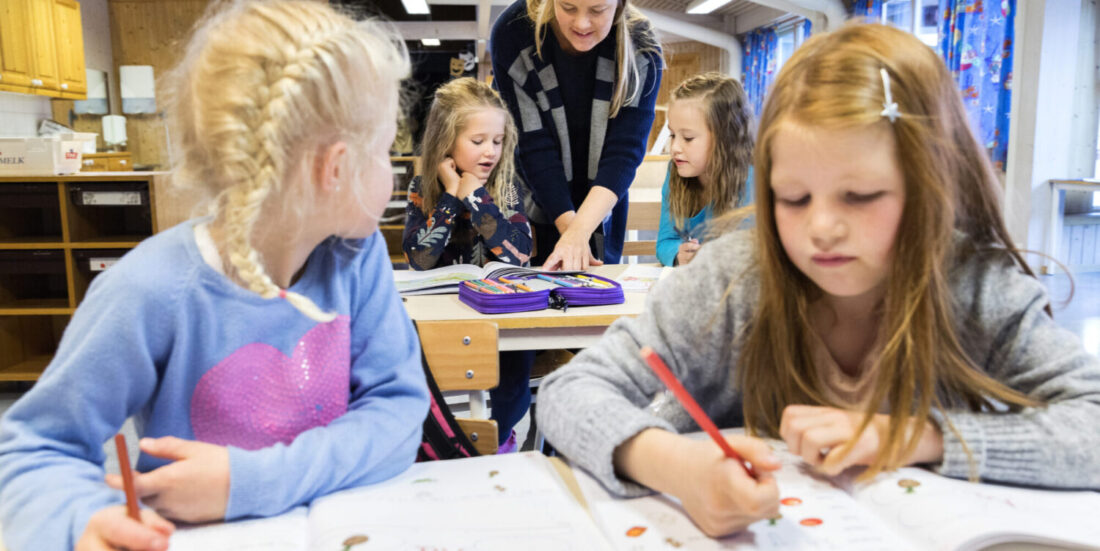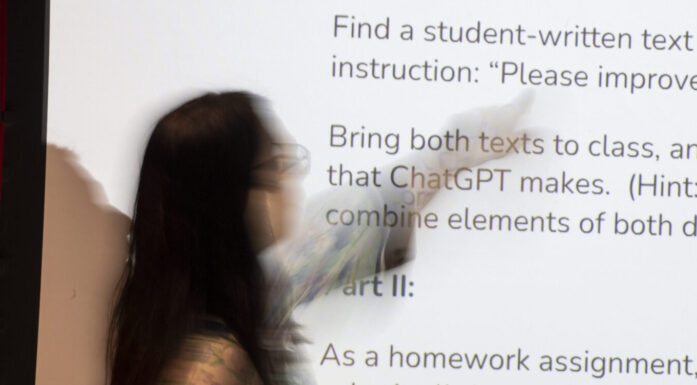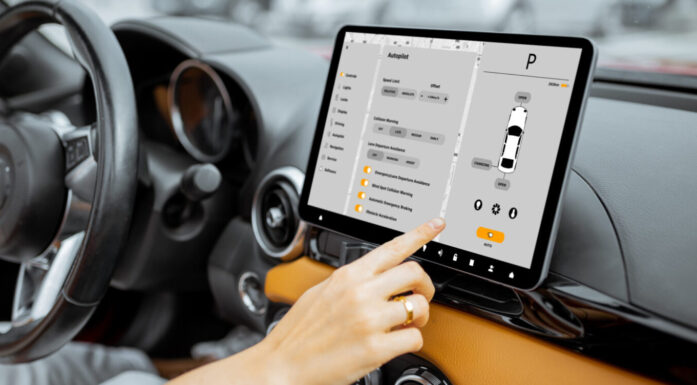Clever hands can’t be digitalised
A huge amount of the knowledge we acquire about our work cannot be expressed either digitally or on paper. Children ought to be made aware of this as early as in primary school, because this tacit knowledge is in danger of dying out.
Have you ever wondered why the food you prepare never tastes quite like Jamie Oliver says it should, even though you follow his recipes to the letter? The answer is that you cannot truly acquire a celebrity chef’s knowledge via books and videos.
In fact, much of it cannot be captured or put down in writing at all. This is why we call it tacit knowledge.
Jamie Oliver just does what all celebrity chefs do. He smells it. He tastes it. He seasons it, tastes it again and seasons it some more until it’s just right. It simply isn’t possible fully to explain every aspect of his culinary knowledge.
School children don’t get to hear much about tacit knowledge in the classroom – and this is a great pity.
Hot for digitalisation
Tacit knowledge can be found in almost every workplace. Think of a caretaker who has an almost visceral sense for the condition of his buildings. Or an ambulance driver who ‘reads’ the traffic around her as she speeds to the scene of an accident. And the customer service adviser who quickly recognises those customers who aren’t quite sure what they’re looking for.
But now that many businesses are focusing increasingly on digital systems, this tacit knowledge is in danger of dying out.
Managers hot for digitalisation appear to be forgetting that tacit knowledge cannot be applied using PCs, tablets or smart telephones, simply because it cannot be written down. And this explains why many workers feel that the digital devices they are directed to use are irrelevant when it comes to addressing their core tasks. In some cases, such systems are simply getting in the way.
Take the plunge and reflect
Neglect and a lack of focus is all it takes for tacit knowledge to deteriorate and disappear. If this is allowed to happen, businesses will never get to apply it. And this in spite of the fact that they continue to insist, at least on paper, that the cumulative knowledge held by their employees is their most important asset.
If we want to rescue tacit knowledge, primary schools should be making their pupils aware of exactly what this knowledge is and why it can’t be applied using digital devices.
I suggest that our swimming pools and the school kitchens are ideal arenas for promoting pupil awareness. Here, the children will be freer to reflect and wonder about the skills they are acquiring that are not displayed on their screens in the everyday classroom.
This approach would be entirely in line with the Norwegian national curriculum – the primary schools’ ‘bible’, where it states very clearly that “the school shall encourage pupils to reflect on their own learning”.
Traditional model is best
Tacit knowledge is shared after collective trial and error, and for this reason, the traditional master and apprentice model often reveals itself to be the best. In the workplace, much new knowledge and new ways of working can also be disseminated not by reading instructions and procedures, but by colleagues conversing with each other.
I believe that pupils would benefit from their schools training them using knowledge-sharing models of this type.
The term ‘tacit knowledge’ was introduced at the beginning of the 1960s as a label for the knowledge that we acquire through our lived experience.
I have carried out some of my own research in this field on building sites watching experienced concrete workers testing the concrete flowing out of the mixer truck. They would dip their hands into the mixture and feel the concrete between their fingers. Then they would look up to the sky to get a sense of the temperature and air humidity and would know with absolute certainty exactly how to cast the concrete.
This is tacit knowledge applied in practice.
Two challenges
Many of the most important things we need to know in our day-to-day work are learned in this way. But tacit knowledge also presents us with two challenges:
- Firstly, how do we acquire it and, when we have it, how can we share it with others? And how can we prevent it from it disappearing from the workplace when we leave?
- Secondly, since tacit knowledge cannot be applied using digital devices, what can be done to prevent corporate strategies such as “digitalising the business” and “investing in our employees’ knowledge” (two of the business sector’s’ key slogans) from working against each other?
Tomorrow’s employees and bosses
The questions I posed in connection with the aforementioned challenges are also relevant to our schools. I believe that pupils, who are the employees and bosses of the future, must be educated in how to acquire tacit knowledge, how to share it, and how to apply technology to support it.
When we build our digital systems, we recognise and focus only on knowledge that can be written down and rationally explained. In the same way, assessment processes carried out both in the workplace and in our schools serve only to focus on knowledge and skills that can be measured.
Who assesses if the food tastes good in your Home Economics class? This may not be easy to measure, but if a pupil should ever want to become a chef, isn’t this the most important thing?
Undermining pride in our work
I would argue that we should consider whether pupil assessments at school are undermining our children’s self-awareness of tacit knowledge. My studies have also shown that in the workplace, an employee’s pride in his or her work is undermined when their employer erroneously believes that their tasks can be carried out equally well by a computer.
They are forced to live with a feeling that their employer is unable to recognise the value of their tacit knowledge.
We live in an era in which theoretical knowledge is assigned high status, and where higher education qualifications are required for more and more jobs. Moreover, the value of tacit knowledge seems to have been forgotten in everyday working life. In their zeal to achieve digitalisation and optimal efficiency, businesses are kicking tacit knowledge into the long grass.
If our schools also fail to recognise the value of tacit knowledge, there is a danger that they will go the same way.
This feature article was first published in the national newspaper Klassekampen on 12 July 2023 and is reproduced here with the permission of the paper.
An extended version of this article can be found as a chapter in the book Hode og Hender (Head and Hands), edited by Tonje Brenna and published by Res Publica in May 2023 (in Norwegian).




